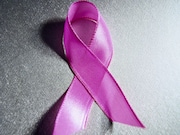Some excess risk persists for >10 years after ceasing therapy; magnitude varies with duration of use
FRIDAY, Aug. 30, 2019 (HealthDay News) — Use of menopausal hormone therapy (MHT) is associated with an increased incidence of breast cancer, according to a study published online Aug. 29 in The Lancet.
Researchers from the Collaborative Group on Hormonal Factors in Breast Cancer combined epidemiological evidence on the associations between MHT and breast cancer risk and relevant randomized evidence. Individual participant data from all eligible prospective studies were used in principal analyses. Adjusted risk ratios (RRs) were evaluated comparing specific groups of MHT users versus never users.
During prospective follow-up, the researchers found that 108,647 postmenopausal women developed breast cancer at a mean of 65 years; 51 percent of these women had used MHT. Apart from vaginal estrogens, every MHT type was associated with excess breast cancer risks, which increased with duration of use and were higher for estrogen-progestagen versus estrogen-only preparations. These excess risks were definite during years 1 to 4 for current users (estrogen-progestagen: RR, 1.60; estrogen-only: RR, 1.17) and during years 5 to 14 (estrogen-progestagen: RR, 2.08; estrogen-only: RR, 1.33). Risks were similar for women starting MHT at ages 40 to 59 years and were attenuated by starting after age 60 years or by adiposity. Some excess risk persisted for more than 10 years after MHT was stopped, with the magnitude dependent on duration of previous use.
“In western countries there have been about 20 million breast cancers diagnosed since 1990, of which about one million would have been caused by MHT use,” the authors write.
Copyright © 2019 HealthDay. All rights reserved.








